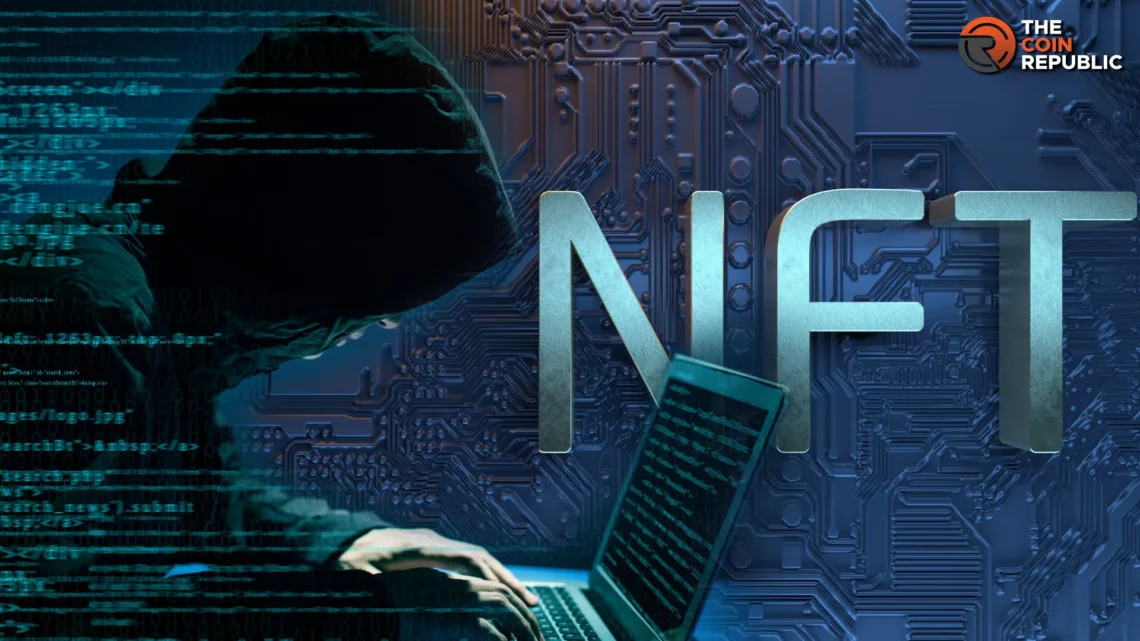Investors are drawn towards the hype of NFTs. However, this growing market is experiencing a variety of scams, one of which is the NFT Swap order scams.
NFTs have transformed digital ownership, but regulatory issues and user experience has been recognized as a deterrent to mass adoption. Multiple industries are utilizing NFTs for various purposes, and their future relies on advancements in regulation, interoperability, and ease of use. Once these challenges are addressed, NFTs are expected to have a significant cross-industry impact. However, amid the evolution, scams in the NFT space are also growing by the day.
What Are NFTs
NFTs are unique digital assets on blockchain networks, mostly the Ethereum network. They provide a new model of ownership and distribution and are verified using public blockchain. They are a certificate of authenticity that proves ownership, and can be used in various industries ranging from art to gaming.
NFT Scam: NFT Swap Order
The use of swap orders facilitates NFT trading directly between users’ wallets. The trade can be for another NFT, cryptocurrency, or a mix of both. The specific terms of the trade are determined by the person who creates the order.
By crafting a swap order, anyone can exchange their NFT in a personalized manner. When you sign a swap order, you’re authorizing the instructions it contains, including the permission to withdraw a particular NFT from your wallet.
When a swap order is created, it will have its own page that includes a picture of the tokens being traded, a link to the OpenSea page that displays the host smart contract for the token, and a link to the Etherescan page that provides complete details of that smart contract.
Swap Order Scams
NFT swap order scams involve tricking someone into exchanging their valuable digital item for one of little or no value. The scam is said to follow a typical pattern where the scammer creates a false contract. Then, they go about claiming that it represents a high-value digital item, and propose a swap for a less valuable counterpart. Moreover, the scammer disappears once the victim sends their prized digital possession, leaving the victim with nothing.
Scammers also employ another approach, where they offer seemingly irresistible trades. For example, they might suggest swapping a rare and valuable digital item for a common and inexpensive one. The scam works by enticing victims with the prospect of acquiring a valuable digital item at a low cost, only for them to discover the deception after the transaction is complete.
How Scammers Fool Retail investors
To pull off the swap order scam, scammers create fraudulent NFT listings or auctions on popular NFT marketplaces. These listings typically involve high-value, rare, or popular NFTs. Scammers use enticing descriptions, attractive images, and promotional materials to make fake NFTs appear exceptionally desirable and valuable.
Scammers approach potential victims through social media platforms or direct messages, claiming to possess the sought-after NFT that the victim desires and proposing a swap for another NFT owned by the victim. This tactic preys on the victim’s interest in obtaining a particular NFT.
Real Life Example
In September 2022, an NFT trader encountered a new and deceptive scam within the Web3 space in which the trader lost a prized MAYC (Mutant Ape Yacht Club) — this was an NFT swap or rather, a good example of an NFT scam.
The scammer directly contacted the victim through a private message, proposing a seemingly straightforward swap of two MAYC tokens. Moreover, this took place with the scammer sweetening the deal by offering additional ETH. Any investor or crypto enthusiast in real knows that the ETH is valuable. When the investor is lured with something valuable in return, it gets even easier to initiate an NFT scam.
The scammer created a swap order to facilitate the exchange and shared the code with the victim, where the swap page represented the scammer’s assets on the left and the victim’s assets on the right.
Despite the seemingly transparent swap page, crucial details were concealed. Notably, the page failed to confirm the authenticity of the incoming NFT regarding its collection. True verification requires examining the underlying smart contract, as any image can be minted onto the blockchain. This can be achieved by clicking on the Etherscan embedded link within the page.
The trader missed critical opportunities to identify the scam, resulting in the exchange of their valuable MAYC for a fraction of its actual worth. The inclusion of valid ETH in the deal, thanks to the SudoSwap protocol, added a layer of deception to the scam.
What Government Are Doing To Prevent Scams In The Crypto World
Governments worldwide are implementing measures to prevent retailers from falling victim to scams in the crypto industry. Furthermore, to regulate the trade and transfer of cryptocurrencies, numerous countries have introduced regulations.
Chair of the Securities and Exchange Commission (SEC) of the USA, Gary Gensler, emphasized the importance of technological advancements in a recent document.
The Argentinean government has also taken steps to prevent crypto scams and protect retail investors by establishing several regulations for the industry. These steps include the mandatory Registry of Virtual Asset Service Providers (VASPs) which are basically companies that deal with crypto products and services. One of the major players, South Africa, is destined to become one of the first African nations to mandate that crypto exchanges obtain licenses. Thailand will be done with around 60 cryptocurrency platforms expected to receive permits by the end of the month.
Summary
NFT trading through swap orders allows direct exchange between wallets. Scammers create false contracts to trick users into swapping valuable NFTs for worthless ones. To prevent such scams, governments are implementing measures and introducing regulations to regulate cryptocurrency trading.
Disclaimer
The views and opinions stated by the author or any people named in this article are for informational purposes only. They do not establish financial, investment, or other advice. Investing in or trading in stocks, cryptos, or other related indexes comes with a risk of monetary loss.

Steefan George is a crypto and blockchain enthusiast, with a remarkable grasp on market and technology. Having a graduate degree in computer science and an MBA in BFSI, he is an excellent technology writer at The Coin Republic. He is passionate about getting a billion of the human population onto Web3. His principle is to write like “explaining to a 6-year old”, so that a layman can learn the potential of, and get benefitted from this revolutionary technology.


 Home
Home News
News






